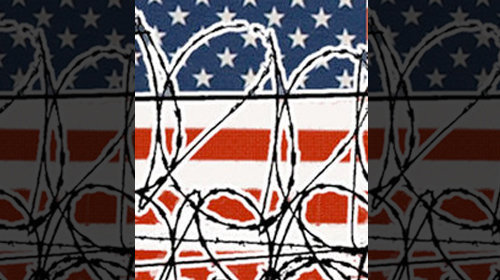
Today, the ACLU released a 2011 FBI “primer” on overseas interrogation that calls into question whether the FBI is adhering to its own policy prohibiting coercive techniques. The 2011 primer was obtained by the ACLU and colleague organizations through Freedom of Information Act litigation. It was written by an FBI Section Chief within the counterterrorism division, and is ironically titled “Cross Cultural, Rapport-Based Interrogation,” – ironic because it encourages FBI agents to request that detainees in foreign or military custody be put in isolation to prolong the detainee’s fear for interrogation purposes. Isolation was a key component to many of the abusive interrogations that took place in Guantanamo, Afghanistan, and in secret CIA black sites after 9/11, in some cases causing extreme psychological trauma. This morning, we wrote to the FBI Director Robert Mueller expressing their concerns with the primer.
The 2011 FBI primer recommends that FBI agents ask the detaining authority to isolate a detainee “several days before you begin interrogation” as well as during the “multi-session, multi-day [interrogation] process.” The primer also repeatedly cites and encourages FBI interrogators to read the 1963 CIA KUBARK manual, a highly controversial document long disavowed and disparaged for its promotion of severe prisoner abuse, including through the use of isolation. Even the KUBARK manual explicitly recognizes the use of isolation in interrogation as a “coercive technique” with profound psychological effects, such as hallucinations and delusions.
The use of isolation as described in the 2011 FBI primer would appear to violate FBI policy. The FBI’s special agents’ handbook explicitly recognizes isolation for interrogation purposes as a form of coercion. During the Bush administration, when FBI agents appeared confused about whether or how isolation could be used for interrogation purposes at Guantanamo, senior FBI officials clarified that it was impermissible and that they should avoid even being consulted on such decisions. Such advice is consistent with U.S. Supreme Court precedent that identifies the use of isolation as an indicator of coercive interrogation and notes the “inevitable disquietude and fears” that isolation engenders.
FBI agents should not be asking foreign governments or other agencies to engage in conduct that FBI agents are prohibited from engaging in. This is especially true when that conduct—like the use of isolation interrogation—raises serious human rights concerns and could lead to violations of international and domestic law.
Recognition of the harmful impact of isolation on the physical and mental wellbeing of prisoners has recently led both the U.S. Senate and the United Nations to more carefully scrutinize the use of solitary confinement. Scientific studies demonstrate that even short-term isolation can have profound negative psychological impact, including severe anxiety, hallucinations and an inability to concentrate.
Today’s letter urges Director Mueller to make clear that FBI policy does not permit the use of isolation in interrogation. The letter also urged the FBI to immediately cease using the primer, investigate how it came to be used, and to provide remedial training for any agents previously provided the primer. The FBI must send an unequivocal message to its agents and its international partners that it is committed to non-coercive interrogations and will not tolerate prisoner abuse.
Learn more about torture: Sign up for breaking news alerts, follow us on Twitter, and like us on Facebook.

